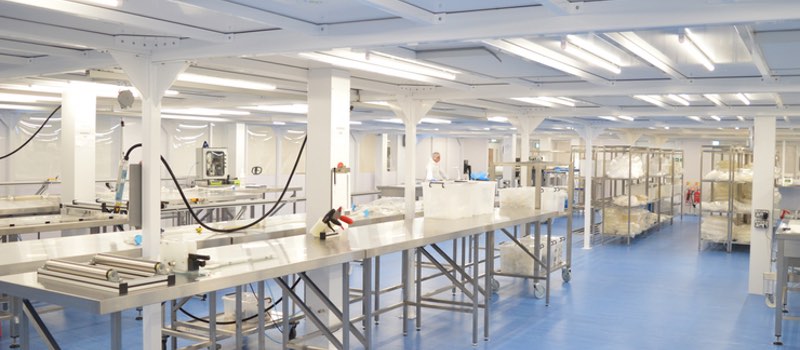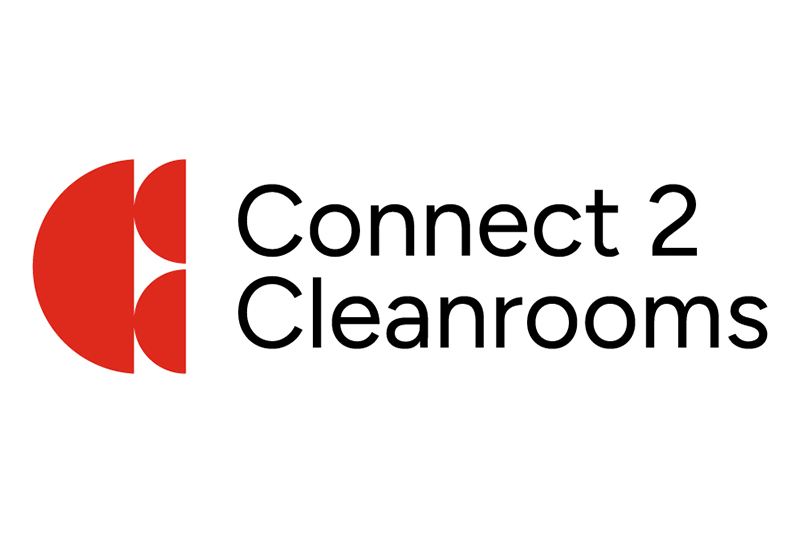Europe is at a crossroads over Brexit, and the sentiment among companies delivering products and services for controlled production environments is bittersweet. Businesses in mainland Europe see the potential of the market overseas, but the shadow of paperwork and legal framework uncertainty of a no-deal exit render the UK less attractive. On the other hand, British businesses have realised the time has come to tap into markets further afield.
Headlines on Cleanroomtechnology.com show that the cell and gene therapy sector is fuelling cleanroom builders. It's accompanied by an upward trend in the vaccines CDMO business.
In Europe, despite the unpredictable environment, the UK ranks near the top of the list for projects under construction. Last month, for example, Fujifilm Diosynth Biotechnologies announced the creation of a new BioCampus at its Teesside, UK location, including 42,000 sqft of space. Also last month, the UK's first Vaccines Manufacturing Innovation Centre started to take shape as WHP Engineering signed a contract for the design of new cGMP suites and filling rooms.
Competition is tough, and companies that agreed to take part in this report reveal the strategy to buck the trend.
Market overview
“We do expect the current uncertainty around Brexit to have some negative impact on clients' investment decisions," says Steve Lawton, MD of the UK’s Clean Room Construction (CRC). “Uncertainty and lack of clarity are not good for any business," he adds.
Commenting on where the demand is coming from, Lawton says: “Most of our work comes from the healthcare, electronics, industrial and defence sectors. We've been operating for more than 50 years and we have a good level of repeat clients," he points out. Lawton also reveals the company is nearing completion of a two-phase project from King's College London in the Strand. “Phase 1 consisted of two optics labs, which are currently being handed over, and an Atomic Layer Deposition cleanroom is due for completion in June,” Lawton explains.
As new facilities are built, the demand for furniture is on the rise. Teknomek, the cleanroom furniture specialist, is among the UK companies reporting robust sales in 2019. Commercial Manager, Sue Springett, explains: “We're in a fortunate position in that we offer business-critical hygienic products. Although there is a lot of uncertainty in the market, our clients don't skimp on hygiene because the regulations don't change.”
For Springett, Brexit will ultimately help or hinder the business. She elaborates: “We're fairly insulated given most of Teknomek's clients and suppliers are in the UK and Ireland. It also seems unlikely hygiene regulations will become any less rigorous when we do leave the EU. The only potential issue is that, like many manufacturing businesses, we source some of our parts and spares from beyond UK borders, so we've managed the risk by increasing our stock."
It also seems unlikely hygiene regulations will become any less rigorous when we do leave the EU
John Wallingford, Operations Director of the pharmaceutical monitoring systems specialist Pharmagraph concurs. A British company, Pharmagraph exports to global territories and he believes Brexit will increase the paperwork and the workload on the export department, such as updating the documentation to suit the new landscape. He also foresees delays in product shipment while a new system beds in.
Commenting on the company's contingency plan, Wallingford says: “We have just established a new Irish office to enable us to increase our market penetration into Ireland by offering direct system integration and service from the new office. We will continue to build upon our existing customer base in the UK and further developing markets for us in the US and other global markets.”
In Turkey, Hasim Solmaz, General Manager at Lighthouse Worldwide Solutions (LWS) concurs with Lawton in that biopharma applications are a driving force of business, but Solmaz, who is also the Chairman of the Cleanroom Technologies Society of Turkey, is less positive about the market in 2019. He says: “The pharmaceutical industry is growing for sure, but the trend is now slowing. Today, new biotechnology investments are leading the way.”
The Netherlands is one of the countries in Europe keeping cleanroom builders busy. “I'm very positive with the market in 2019," says Geerd Jansen, General Manager of Brecon. The Dutch cleanroom construction specialist has reported a good Q1 2019, and Jansen says the prospect for the rest of the year is buoyant. “Beautiful projects in the GMP market are already ordered for 2020,” he says.
For Jansen, who spearheads the strategic alliance Professional Partners for Controlled Environment (PP4CE), the highlight of the year was the project with Stulz, its HVAC partner, delivered in Silicon Valley for a German customer. “The project confirms our vision of acting on a global scale. This project was very difficult to work on in the design stage, and yet the result very satisfying.”
Commenting on Brexit, Jansen says: “I think that it could be positive for Dutch cleanroom builders. Some of the British competitors are very aggressive in Holland. We do see that some customers are a bit afraid to buy in Great Britain right now.”
Business opportunities
Puracore, the specialist cleanroom panel brand of Gilcrest Manufacturing, is among the UK companies with a solid strategy for whatever outcome of Brexit. “We have been experiencing an ever-increasing demand for our range of cleanroom systems and the product range as a whole,” says James Meylan, Sales and Marketing Director. He says the company has increased manufacturing capacity, due to be operational in the next few months, to cope with demand. “The Puracore team feels very positive about the market, particularly in export opportunities overseas,” he says.
Like Maylan, Joe Govier, MD of Connect 2 Cleanrooms (C2C), is positive about the market, despite the uncertainty around Brexit. He says demand comes from a variety of sectors and that the international trade is up. “Our exports from the UK have been up to 48% this year with GMP and ISO cleanroom facilities delivered to different parts of the globe. Our consumables and supplies have also seen significant growth where we're able to provide global agreements for international clients.”

The new Parker Bioscience facility delivered by Connect 2 Cleanrooms
Govier points out that the aerospace sector is a growth area, as cleanroom requirements are part of compliance for certain processes.
Robert Parker, MD of Micronclean, concurs. “We are relatively new entrants into the export market,” he says. “We continue to build our broad range of products meeting the needs of the operators of high-grade cleanrooms, and we are finding that our innovative products and service focus are opening new doors all the time.”
Micronclean has been in expansion mode for the last couple of years. The cleanroom supplies and laundry services provider headquartered in Skegness, UK, broke ground on a new ISO Class 5 cleanroom laundry centre in Bangalore last October, opened two distribution hubs in southern England in January and this month teamed up with gowning specialist BeMicron in a deal that will see the company carry GMP coveralls into the UK.
New products
Enviflex, a newcomer providing services and consumables for the Czech market, reports business opportunities are coming from other sectors, too. MD David Zoul says: “I believe that more IT and smart technologies will be needed in cleanrooms.”
Headquartered in Ceske Budejovice, the capital city of South Bohemia in the southern part of the country, Enviflex carries well-known brands the like of Ecolab, Tyvek and Ansell, to name but a few.
For Brecon's Jansen, the prospect of growth is on international trade. “Demand is coming from pharma and GMP applications in general and the semiconductor. We do have high expectations in the food market segment in the long run,” he enthuses.
Puracore's Meylan concurs and says that regulatory updates making drugs, microelectronics, medical devices and food sectors drives business. “Companies are branching out into cleanroom work, broadening our opportunity to work with more cleanroom partners,” he says. And Pharmagraph's Wallingford concurs: “We see opportunities in integrating new products and systems to meet the demands of the new EU-GMP Annex 1,” he says.
Wallingford reveals that Pharmagraph will launch a new Active Air Sampler (iVAS) for Isolator and RABs filling machines. “The iVas has been designed to offer a higher specification, better integration and has been well received during initial customer discussions. We expect this new product to take off in 2019,” he enthuses.
Parker of Micronclean also announces new products will hit the market shortly. “We are finding the upcoming revision of Annex 1 is having a significant impact on the compliance requirements of our customers, and we are focused on bringing a number of new products to the market to meet these needs, some of these products will also be suitable for export,” he says.
Parker reveals the new offering will not only strengthen Micronclean’s portfolio but will have significant environmental benefits to meet the ambition to reduce plastic usage.
The hint of new products in the drawing board is a testament to the dynamism in the market. Players in the industry are making investments in staff and the business. For example, Enviflex's Zoul says the construction of a cleanroom laundry service is on the horizon, C2C's Govier says 2019 will see the completion of a full MRP implementation, and Puracore's Maylan says by the end of 2019 the company will be commissioning a brand new manufacturing facility, enabling the business to double production capacity.
One thing is clear. The outcome of the UK's exit process casts a shadow on the industry in Europe, but companies have proven to be resilient and business is in good health.
N.B. This article is featured in the June 2019 issue of Cleanroom Technology. The digital edition is available online.





